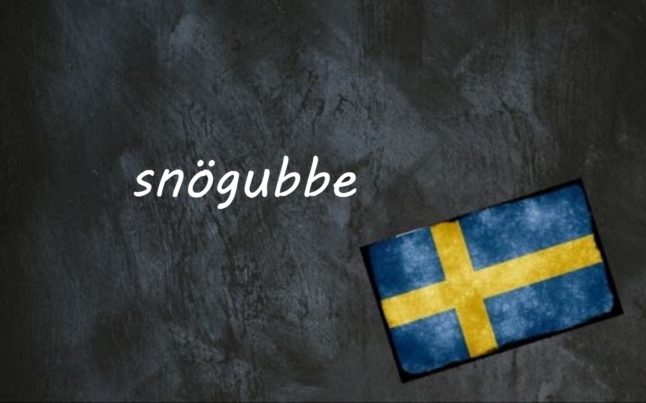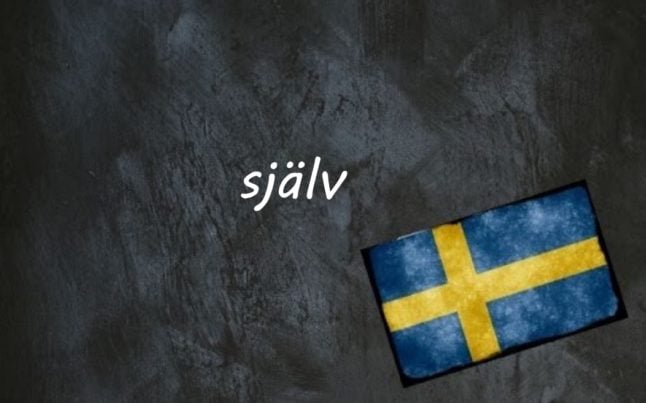Today’s wintery word of the day is snögubbe, the Swedish word for snowman.
If you’ve spent a lot of time in Sweden, you will probably have come across the word gubbe before, usually used as an affectionate – or derogatory, depending on the context – word for “old man”, which makes a snögubbe a “snow old man”.
According to the Swedish Academy’s dictionary, the word snögubbe has existed in Swedish since 1804.
And it’s an important word. In some areas of Sweden, like northern Swedish town Kiruna, snögubbar aren’t just a winter phenomenon, and you might even have a chance to build one well into the summer if the weather is on your side.
A traditional snögubbe is usually made of kramsnö, soft snow which has the perfect consistency for rolling snowballs. This kramsnö is then rolled into two or three large snöbollar (snowballs) stacked on top of one another, with a morot (carrot) for a nose, and pinnar (sticks) for hands.
- Don’t miss any of our Swedish words and expressions of the day by downloading The Local’s new app (available on Apple and Android) and then selecting the Swedish Word of the Day in your Notification options via the User button
One popular snögubbe among Swedish children is Olaf from the Disney film Frozen (Frost in Swedish), although the earworm “Do you want to build a snowman?” is translated as “Vill du inte ut och leka?” (Don’t you want to come out and play?) in the Swedish version of the film – apologies in advance for getting the song stuck in your head all day.
British readers may also remember the children’s book The Snowman from 1978, about a boy who builds a magical snowman that comes to life. This book, and the film adaptation released a few years later, is still popular in Sweden, where you can find it in bookshops under the name Snögubben – a great gift idea for any snow-loving Swedish-speaking children in your life.
Example sentences:
Vill du ut och bygga snögubbar?
Do you want to go outside and build snowmen?
Vi gjorde en snögubbe med barnen i går, men den har redan börjat smälta nu.
We made a snowman with the kids yesterday but it’s already started melting now.
Villa, Volvo, Vovve: The Local’s Word Guide to Swedish Life, written by The Local’s journalists, is available to order. Head to lysforlag.com/vvv to read more about it – or join The Local as a member and get your copy for free.
It is also possible to buy your copy from Amazon US, Amazon UK, Bokus or Adlibris.



 Please whitelist us to continue reading.
Please whitelist us to continue reading.
Member comments